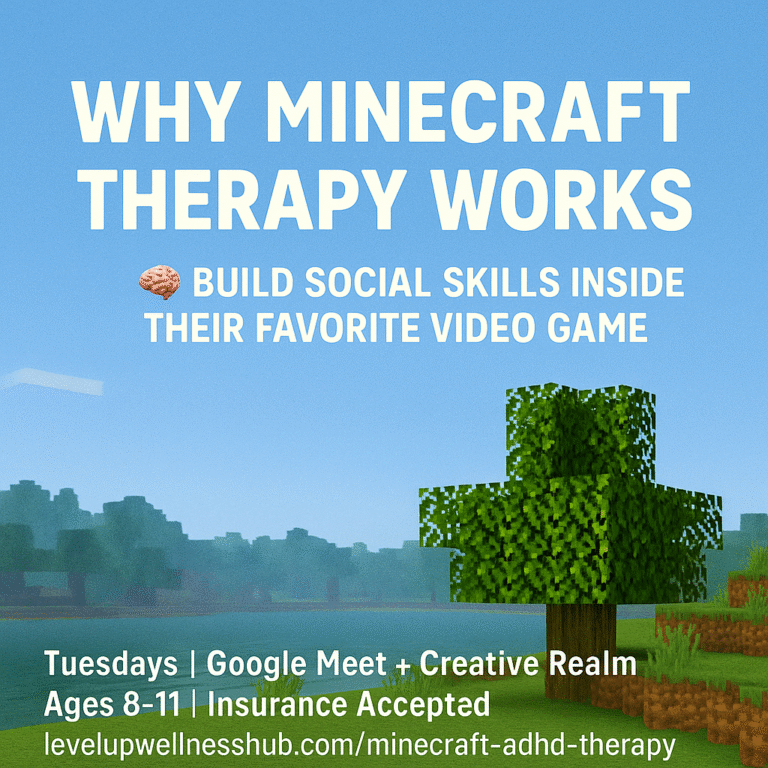Navigating Menopause with ADHD: The Role of Hormone Therapy and Solution-Focused Therapy
For women with ADHD, menopause can be an especially challenging transition. The natural hormonal fluctuations during this phase can exacerbate symptoms like brain fog, forgetfulness, and anxiety, compounding the executive dysfunction and emotional regulation struggles already present with ADHD. However, understanding these changes, exploring helpful treatments like hormone replacement therapy (HRT), and incorporating Solution-Focused Therapy can provide much-needed relief and tools for thriving during this time.
The ADHD-Menopause Connection
Estrogen plays a crucial role in cognitive functioning, emotional regulation, and dopamine production—all essential elements for managing ADHD. During perimenopause and menopause, declining estrogen levels can lead to:
- Increased brain fog: Difficulty concentrating or thinking clearly may become more pronounced.
- Forgetfulness: Memory lapses that were manageable in the past may become frustratingly frequent.
- Heightened anxiety: Fluctuating hormones can amplify worry and restlessness, making it harder to navigate daily challenges.
- Sleep disturbances: Poor sleep, already common with ADHD, can worsen due to hormonal shifts, further affecting mood and focus.
How HRT Can Help
Hormone replacement therapy is one of the most effective ways to address menopause symptoms. While every woman’s hormonal needs are different, certain HRT options have been particularly beneficial for those with ADHD:
- Estrogen Therapy: Estrogen supplementation can help restore some of the cognitive and emotional balance lost during menopause. Many women report improvements in brain fog and mood stabilization.
- Combination Therapy (Estrogen and Progesterone): For women with a uterus, combining estrogen with progesterone helps protect against certain health risks while supporting overall hormonal balance.
- Transdermal Options: Patches, creams, or gels are often preferred for their ability to deliver hormones steadily, avoiding the peaks and troughs associated with oral HRT.
- Testosterone Supplementation: Though less commonly discussed, low doses of testosterone may also aid cognitive function and energy levels in some women.
The Role of Solution-Focused Therapy
HRT can address the biological aspect of menopause, but emotional and behavioral strategies are equally important. Solution-Focused Therapy (SFT) offers a practical and empowering approach to tackle ADHD and anxiety symptoms during this life stage. Here’s how SFT can help:
- Clarify Goals: SFT focuses on identifying what’s working and building toward clear, achievable outcomes. For women in menopause, this might involve creating routines or systems to improve memory and focus.
- Strength-Based Approach: Instead of dwelling on problems, SFT highlights your strengths and what’s already helping, giving you a solid foundation to build upon.
- Personalized Coping Strategies: By addressing the unique challenges of ADHD during menopause, SFT helps women develop strategies to:
- Manage forgetfulness with systems like reminders and organizational tools.
- Overcome brain fog by breaking tasks into smaller, manageable steps.
- Reduce anxiety through mindfulness, self-compassion, and realistic goal-setting.
- Build Confidence: Menopause can leave women feeling like they’re losing control, but SFT fosters a sense of capability by focusing on progress and small wins.
Practical Solutions to Put in Place
Here are a few SFT-inspired strategies that can help women with ADHD during menopause:
- Externalize Memory Aids: Use calendars, alarms, and visual reminders to combat forgetfulness.
- Anchor Routines: Create consistent habits around daily tasks to reduce decision fatigue and increase efficiency.
- Simplify Systems: Break down complex processes into smaller, repeatable steps.
- Practice Self-Compassion: Recognize that menopause is a significant life change and allow yourself grace as you adjust.
- Prioritize Sleep: Work on sleep hygiene to enhance cognitive function and emotional regulation.
The Road Ahead
For women with ADHD, menopause doesn’t have to mean losing control of their focus, memory, or emotional well-being. By addressing hormonal imbalances with HRT and equipping yourself with practical tools through Solution-Focused Therapy, you can navigate this phase with clarity, confidence, and renewed energy.
If you’re seeking tailored support, consider working with a professional who specializes in ADHD and menopause. Remember, this is a journey of growth and adaptation—you don’t have to navigate it alone.


